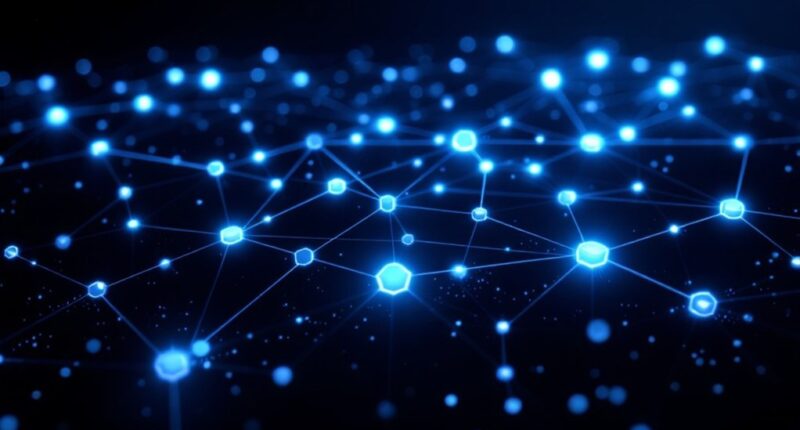A DAO (Decentralized Autonomous Organization) is a blockchain-based organization governed by smart contracts and community members instead of traditional leadership. Operating through code and collective decision-making, DAOs allow participants to vote on proposals using governance tokens. These digital democracies enable global collaboration, transparent operations, and automated management of resources. From investment groups to social clubs, DAOs are reshaping organizational structures in the crypto space, offering new ways to pool resources and make decisions. The evolution of DAOs continues to unfold across multiple sectors.

While traditional organizations typically operate with a clear hierarchy and central authority, Decentralized Autonomous Organizations (DAOs) have emerged as a revolutionary governance model in the cryptocurrency space that turns this concept on its head.
These blockchain-based entities operate without centralized leadership, instead relying on smart contracts and collective decision-making through member voting.
Think of a DAO as a digital democracy where code is law. Members hold governance tokens that grant them voting rights, similar to shareholders in a company, but with far more direct involvement in day-to-day operations. These tokens allow participants to propose and vote on everything from treasury management to protocol changes, with smart contracts automatically executing the winning decisions. Smart contracts ensure secure data management through blockchain technology. Participants can earn cryptocurrency returns through their contributions or validated work.
DAOs empower token holders to directly shape their organization’s future through code-enforced voting, transforming traditional corporate governance into true digital democracy.
The crypto ecosystem has spawned various types of DAOs, each serving distinct purposes. Protocol DAOs like Uniswap manage decentralized trading platforms, while investment DAOs pool resources for collective investments. Social DAOs create exclusive communities, and collector DAOs jointly purchase valuable digital assets. Grant DAOs, such as Gitcoin, fund public goods and development projects. DAOs are revolutionizing organizational structures by enabling automated governance systems that reshape traditional decision-making processes.
The benefits of DAOs are compelling: transparent operations, global participation without borders, and considerably reduced operational costs through automation.
However, like any pioneering technology, DAOs face their share of challenges. Regulatory uncertainty looms large in many jurisdictions, and the infamous 2016 hack of “The DAO” serves as a sobering reminder of smart contract vulnerabilities.
Despite these challenges, DAOs continue to evolve and expand their influence. Notable examples include MakerDAO, which manages the DAI stablecoin, and Compound, a decentralized lending platform.
The future of DAOs looks promising, with trends pointing toward increased integration with traditional finance and improved governance models.
As the crypto space matures, DAOs are increasingly being recognized as viable organizational structures. Their ability to align incentives between members and the organization, coupled with automated execution of decisions, makes them particularly attractive for digital-native projects.
The expansion of DAOs into non-financial sectors suggests their potential to reshape how we think about organizational governance in the digital age.
Frequently Asked Questions
What Happens to My DAO Tokens if the Organization Dissolves?
When a DAO dissolves, token holders typically receive a proportional share of the treasury’s assets through a distribution process managed by smart contracts.
After taking a snapshot of holdings at a specific block height, eligible holders can claim their portion during an established claim period.
The tokens usually become worthless once the treasury is fully distributed, and trading on secondary markets generally ceases.
Can DAOS Be Hacked, and How Are Security Breaches Handled?
Yes, DAOs can be hacked through various vulnerabilities like smart contract bugs, governance attacks, and flash loan exploits.
Notable examples include The DAO hack in 2016, which resulted in $60 million stolen.
Security breaches are typically handled through multiple layers of protection, including smart contract audits, multi-signature wallets, and emergency stop functions.
When breaches occur, incident response teams coordinate recovery efforts while maintaining transparent communication with the community.
How Do DAOS Handle International Regulations and Compliance?
DAOs navigate international regulations through various compliance strategies.
Many establish legal wrappers like LLCs or foundations in crypto-friendly jurisdictions while implementing KYC/AML procedures for token holders.
They often engage specialized legal counsel and conduct regular compliance audits across multiple jurisdictions.
While there’s no unified global framework, DAOs typically adopt a multi-layered approach, combining on-chain governance mechanisms with traditional legal structures to meet regulatory requirements in different countries.
What Minimum Investment Is Typically Required to Join a DAO?
Minimum investments for joining DAOs vary considerably based on their size and purpose.
Small community DAOs typically require $50-$100, while mid-sized investment DAOs often start at $500-$1000. Exclusive high-end DAOs may demand $5000+ investments.
However, many DAOs offer alternative entry methods, like contributing skills instead of capital or earning tokens through participation.
Some DAOs have no minimum at all, requiring only the purchase of their governance tokens.
Are DAO Earnings Subject to Traditional Tax Laws and Reporting Requirements?
Yes, DAO earnings are generally subject to traditional tax laws and reporting requirements in most jurisdictions.
Income from DAOs, whether through direct payments, governance token distributions, or capital gains, typically needs to be reported.
While the regulatory landscape remains somewhat unclear, the IRS treats DAO-related income similarly to other crypto earnings.
Participants may need to report income on forms like 1099s, and self-employment tax could apply for active contributors.










8 comments